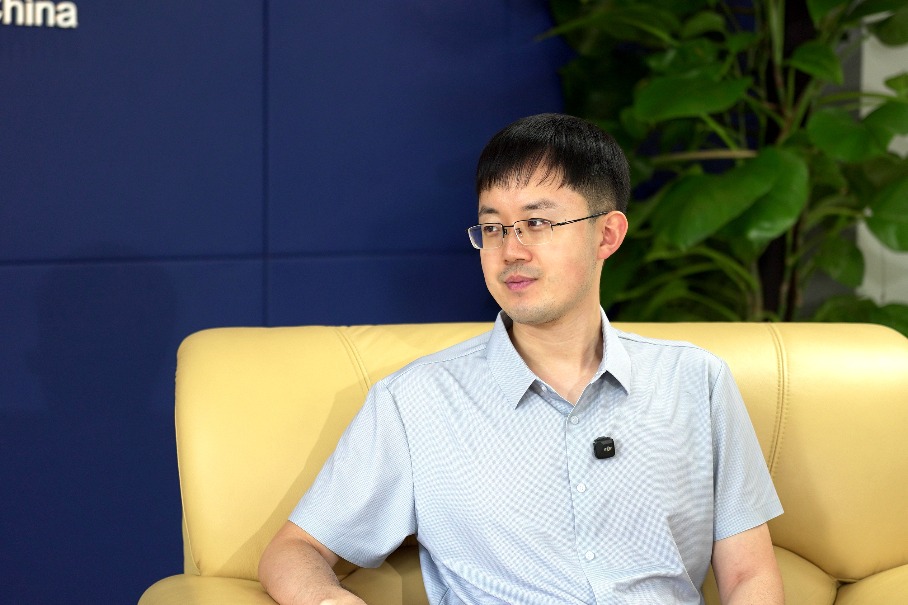Europe at a crossroads


MA XUEJING/CHINA DAILY
EU's most effective path to strategic autonomy in Trump's second term lies in fostering relationships that reinforce its unity and long-term stability
The return of Donald Trump to the White House has once again sent shock waves through the transatlantic alliance. His threat of a trade war with the European Union, pressure on EU states to increase defense spending, and withdrawal from multilateral institutions such as the United Nations Human Rights Council and the World Health Organization have heightened European anxieties. The United States' potential exit from the World Trade Organization raises further alarm, prompting European leaders to reconsider their security and economic dependencies.
At the Munich Security Conference 2025 from Feb 14 to 16, US Vice-President JD Vance fueled these concerns by accusing the EU of democratic backsliding and asserting that Europe's greatest security threat lies within. These developments have reignited the debate on European "strategic autonomy", an issue that has become more urgent in light of the US' shifting foreign policy priorities.
As a matter of fact, the concept of strategic autonomy in the EU dates back to the post-Cold War period and gained momentum after the 2003 Iraq invasion. However, it became a central theme in 2016 with the Global Strategy for the EU's Foreign and Security Policy.
While strategic autonomy has been widely discussed in EU institutions, its definition remains ambiguous. At its core, it signifies Europe's ability to define its values and interests and act upon them. France has been its strongest advocate, incorporating the concept into its White Paper on Defence and National Security as early as 1994. Meanwhile, some policymakers remain skeptical, arguing that strategic autonomy is overly ambitious, financially burdensome, and unrealistic outside a Euro-Atlantic framework.
However, the latest developments in Washington indicate that European leaders can no longer take US security commitments for granted. The persistence of Trump-style policies, even beyond his first presidency, suggests that these shifts in US foreign policy are "structural" rather than temporary. As a result, strategic autonomy is no longer a "luxury" but a necessity imposed by external geopolitical conditions.
With NATO's credibility increasingly in question, Europe must recognize that reliance on US military backing is no longer a certainty. Trump's return has fundamentally altered transatlantic relations, forcing European leaders to reconsider their long-term security strategy. In this new era of uncertainty, strategic autonomy is not just an aspiration — it is a crucial step toward safeguarding Europe's future.
While strategic autonomy has become a "historical necessity" for Europe, the EU's internal divisions complicate its ability to act decisively. The lingering effects of the Eurozone crisis, the rise of far-right extremism, the refugee crisis, and Brexit have weakened European cohesion, making it difficult to translate the vision of autonomy into concrete policy. However, strengthening cooperation with external partners that support European integration could help mitigate these internal challenges and reinforce the EU's emergence as an independent global actor.
One often-overlooked reality is that China has been one of the most consistent supporters of EU integration and autonomy. This stance is not only normative but also aligns with China's economic interests. The EU is China's second-largest export market, while China is the EU's second-largest trading partner. The Belt and Road Initiative depends significantly on the EU, as Europe represents the final destination for some trade routes. A more unified and economically integrated EU strengthens China's access to stable markets and enhances global trade efficiency.
China has also taken concrete steps to support European economic stability. During the sovereign debt crisis in Europe's southern belt, China demonstrated its commitment by purchasing public debt in Greece, Portugal and Spain, while ramping up its investments in the region. In Central and Eastern Europe, China launched an initiative in 2012 to address infrastructure gaps and stimulate economic development. While often misrepresented as a divisive strategy, China's engagement in these regions actually helps reduce core-periphery disparities within the EU, ultimately strengthening European cohesion. A fragmented EU cannot achieve strategic autonomy and genuine integration, making subregional cooperation with China a valuable complement to broader EU integration efforts.
Conversely, the US has often acted as an obstacle to European integration and autonomy. A recent example is Polish Prime Minister Donald Tusk, under US influence, pressuring European leaders to ramp up defense spending. Meanwhile, figures such as Elon Musk and JD Vance have sought to interfere in European domestic politics by amplifying far-right narratives and fostering discord. Additionally, despite the EU's lack of explicit geopolitical interests in East Asia, Washington continues to pressure European governments into adopting a containment strategy against China, further compromising European strategic autonomy.
As Chinese President Xi Jinping has emphasized the development of Europe is conducive to promoting world peace and stability. China and the EU, as two of the world's major civilizational forces, share similar normative expectations and a common interest in promoting multilateralism and global governance. If the EU is to advance its strategic autonomy, it must move beyond outdated frameworks of "systemic rivalry", refrain from imposing its own values as a universalizing model, and focus on pragmatic, mutually beneficial cooperation with key partners. Rather than reducing autonomy to military self-sufficiency and protectionism, Europe's most effective path to autonomy and integration lies in fostering relationships that reinforce its unity and long-term stability. By deepening engagement with China — its strongest advocate for integration, the EU can chart a course toward genuine strategic autonomy while maintaining its commitment to multilateralism, global governance, and sustainable development.
The author is a visiting senior fellow at the London School of Economics and Political Science and adjunct professor at Shanghai University. The author contributed this article to China Watch, a think tank powered by China Daily.
The views do not necessarily reflect those of China Daily.
Contact the editor at editor@chinawatch.cn.


































